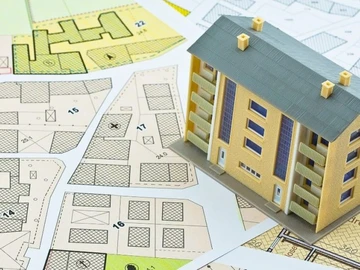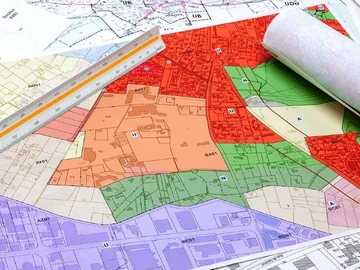Zimbabwe's property market in 2025 is experiencing notable growth and transformation. With an estimated annual growth rate of 5%, the sector is valued at over $11 billion, attracting increased interest from investors and homebuyers. The market is characterized by a strong demand for housing, particularly in urban areas, driven by population growth, infrastructure development, and economic reforms.
Key Market Trends
1. Urbanization and Housing Demand
Urbanization in Zimbabwe is on the rise, with approximately 39% of the population residing in urban areas as of 2025. This trend is contributing to a growing demand for residential properties, especially in cities like Harare, Bulawayo, and Mutare. The housing backlog remains a significant challenge, creating opportunities for developers and investors to meet the increasing demand.
2. Diaspora Investment
There has been a surge in property investments from Zimbabweans living abroad. Diaspora buyers are actively purchasing residential and agricultural plots in Harare, Bulawayo, and emerging peri-urban centers like Ruwa, Norton, and Gweru. This influx of investment is bolstering the property market and contributing to its growth.
3. Infrastructure Development
Infrastructure development is a key driver of property market growth. Improved road networks, access to utilities, and the development of new townships are making previously less accessible areas more attractive to buyers and investors. Areas like Ruwa and Mt Hampden are seeing increased interest due to these developments.
4. Sustainable and Eco-Friendly Housing
There is a growing preference for sustainable and eco-friendly housing solutions. Features such as solar power systems, rainwater harvesting, and energy-efficient designs are becoming standard expectations among buyers. Properties incorporating these features are commanding higher prices and are in greater demand.
5. Luxury Property Market
The luxury property market in Zimbabwe is showing resilience, with premium properties appreciating at rates of 8–12% annually in prime locations. High-end suburbs like Borrowdale, Mount Pleasant, and Glen Lorne continue to attract affluent buyers seeking exclusive living spaces.
Investment Opportunities
1. Residential Properties
With the increasing demand for housing, investing in residential properties, especially in urban centers and emerging suburbs, presents lucrative opportunities. Properties with modern amenities and sustainable features are particularly sought after.
2. Commercial Real Estate
The commercial real estate sector is also experiencing growth, driven by the expansion of businesses and the need for office spaces. Investing in commercial properties in business districts and industrial zones can yield attractive returns.
3. Agricultural Land
Agricultural land remains a valuable asset, with the government's policies aimed at empowering farmers and facilitating land ownership and transfer. Investing in agricultural land can provide long-term benefits, especially with the government's support for the sector.
Challenges and Considerations
While the property market in Zimbabwe presents numerous opportunities, there are challenges to consider:
- Economic Factors: Inflation and currency fluctuations can impact property values and investment returns.
- Regulatory Environment: Understanding and navigating the legal and regulatory framework is crucial for successful property transactions.
- Infrastructure Gaps: In some areas, inadequate infrastructure can affect the desirability and value of properties.
Conclusion
The Zimbabwean property market in 2025 is characterized by growth, diversification, and emerging opportunities. Investors and homebuyers who stay informed about market trends, infrastructure developments, and policy changes can capitalize on the dynamic real estate landscape. Whether considering residential, commercial, or agricultural investments, Zimbabwe offers a range of possibilities for those looking to enter or expand in the property market.
 Continue with Facebook
Continue with Facebook
 Continue with Email
Continue with Email














